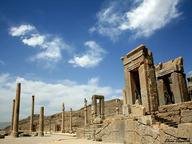Quiz Answer Key and Fun Facts
1. Which one of these could be viewed as a catalyst for the Persian invasion of 490 BC?
2. Who was the strategist of the Athenians in the Battle of Marathon?
3. Why were the Spartans so late in getting to Marathon?
4. Which of these was NOT a factor influencing Xerxes to invade Greece in 480 BC?
5. The Greeks weren't blind - they knew that Xerxes was on the way! In 481 BC, a Congress of 31 Greek states was held to discuss the problem. Which Greek state was given command of both the Greek navy and army?
6. What was the name of the mountain pass where the Greeks fought a key famous battle with the Persians?
7. Thermopylae was a crucial defensive position and so the Greeks reinforced the pass with all the troops at their disposal.
8. Before we talk about Salamis, we need to do the time warp. Who was it, as early as 493 BC, who started taking the initiative to fortify and protect Athens from the Persians?
9. The Decree of Themistocles ensured the evacuation of Athens in six days. Which one of these was NOT commanded by the decree?
10. The Peloponnesians weren't impressed with Themistocles' insistence to face the Persians at Salamis. Before their dissent could get any worse, what trick did Themistocles pull?
11. Which one of these famous playwrights was an eyewitness of the battle of Salamis?
12. After his devastating defeat at Salamis, Xerxes fled Greece because he was scared witless. True or false?
13. It seems that Sparta was once again unwilling to take quick action against the Persians to follow up the Greek victory at Salamis. What did Athens threaten to do if Sparta didn't start moving?
14. The Battle of Platea turned out a victory for the Greeks - which of these two factors were vital contributors to this victory?
15. The final battle of the Persian Wars took place at Mycale. The Greeks won another victory of course, but what other significant event occurred in this battle?
Source: Author
zenphoenixa
This quiz was reviewed by FunTrivia editor
bloomsby before going online.
Any errors found in FunTrivia content are routinely corrected through our feedback system.
